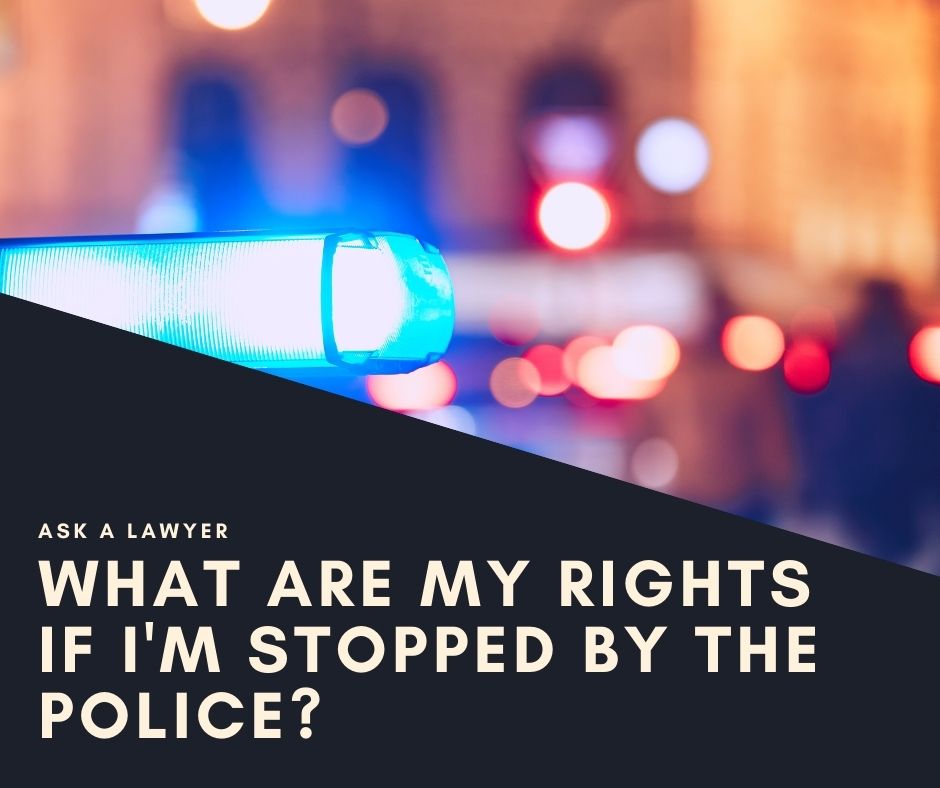Ask a Georgia Lawyer: What Are My Rights If I’m Stopped by the Police?
Asserting your rights is crucial if you are stopped by the police. If you are eventually charged with a crime, asserting your rights can make the difference between a criminal conviction and a dismissal or acquittal. That said, we have seen in recent months (though this is far from a new phenomenon) a number of high-profile situations where encounters with the police turned dangerous or deadly. There is, unfortunately, no way to guarantee that an interaction between the police and a private citizen will not escalate. There is also no way to guarantee that police will respect your rights even after you’ve asserted them.
But knowing
your rights and asserting them calmly and politely can give you the best chance of coming out of the encounter safely while protecting your rights as much as possible.
Take note: This article pertains to if you are stopped on foot by the police. There are other things you should be aware of if you are stopped by the police while driving, or if the police are seeking access to your home. Those will be addressed in a separate blog post.
Under Georgia law, you have the right to:
- Remain Silent. You are not required to answer any questions about your travels (where you are going, where you are coming from, etc.). Do not lie, but do not volunteer information. It may be a good idea to verbally state, “I wish to remain silent.” Georgia does not have an explicit “stop and identify” statute where people on foot are concerned. However, a refusal to identify oneself is one of several factors that is taken into consideration when a person is charged with Loitering or Prowling under O.C.G.A. § 16-11-36 (“A person commits the offense of loitering or prowling when he is in a place at a time or manner not usual for law-abiding individuals under circumstances that warrant a justifiable and reasonable alarm or immediate concern for the safety of persons or property in the vicinity”).
- Ask if you are being detained. While it is generally a good idea to decline to answer questions (see above), it can be helpful to ask whether you are being detained. You can simply ask, “Am I free to leave?” or “Am I being detained?” If they say that you are free to leave or that you are not being detained, you should leave.
- Decline to consent to a search of your person or your personal belongings. The police may still pat you down if they believe you may have a weapon. The police may still search you, but it is in your interest to verbally state, “I do not consent to a search of my person or my belongings.” Watch your body language; don’t nod your head or use any non-verbal cues that can be interpreted as consent to search. If you are ultimately charged with a crime, your refusal to consent may result in suppression of evidence, which can help your case.
- Ask for a lawyer. If you are arrested and cannot afford a lawyer, you can ask for an appointed attorney. You should not give any statements, sign any paperwork, etc. without consulting an attorney first.
Things to keep in mind:
- It is incredibly important to keep calm, even if you think your rights are being violated. An encounter with the police is an extremely stressful situation, and it’s easy to see how emotions can run high. But it is almost impossible to argue your way out of a police encounter, and arguing or becoming combative can be used as an excuse to escalate the situation. Save your arguments for your lawyer, who is in the best position to use them to help you.
- If you think your rights have been violated, take notes on the incident as soon as possible. Write down the officers’ names, badge numbers, and your entire side of the story. Include details regarding any witnesses (including contact information), use of force, etc. Take photographs if you were injured, and seek medical attention. These things may not feel like they are helpful in the moment, but they can be invaluable to your lawyer if you end up being charged with a crime.
- Even if you follow all of these tips, the police may still violate your rights. It is possible, though, that any evidence that was discovered after your rights were violated may be excluded from evidence at trial. This is something that you should speak with your lawyer about.
If you have been charged with a crime after being stopped by the police, contact a Georgia criminal defense attorney today.


